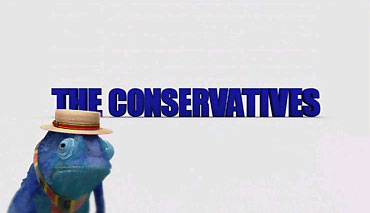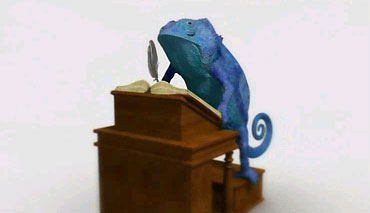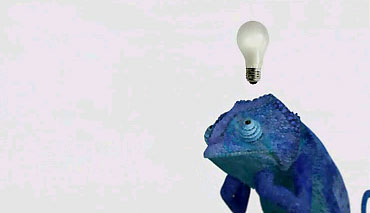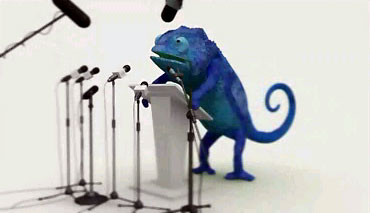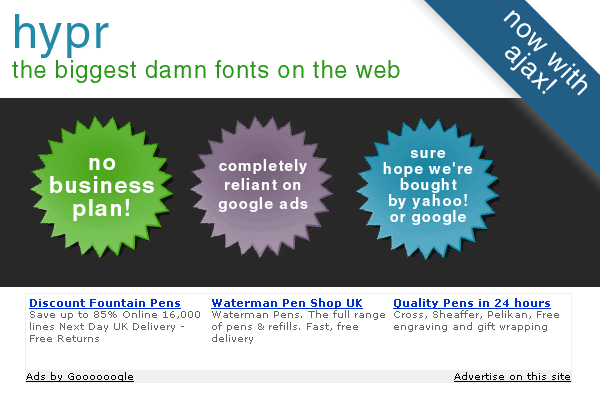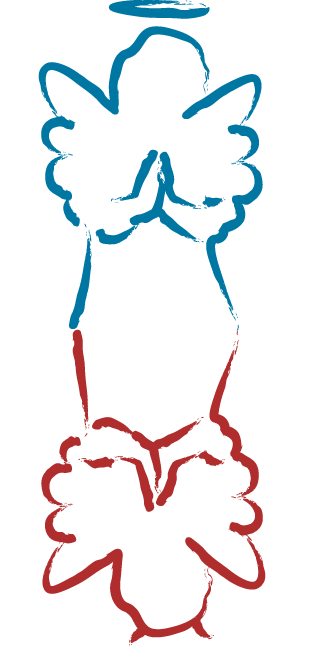Really like this concept, imagining a world where objects, all objects (or at least a lot of them) produce data.
In everyware, the garment, the room and the street become sites of processing and mediation. Household objects from shower stalls to coffee pots are reimagined as places where facts about the world can be gathered, considered, and acted upon. And all the familiar rituals of daily life, things as fundamental as the way we wake up in the morning, get to work, or shop for our groceries, are remade as an intricate dance of information about ourselves, the state of the external world, and the options available to us at any given moment.
In all of these scenarios, there are powerful informatics underlying the apparent simplicity of the experience, but they never breach the surface of awareness: things Just Work. Rather than being filtered through the clumsy arcana of applications and files and sites, interactions with everyware feel natural, spontaneous, human. Ordinary people finally get to benefit from the full power of information technology, without having to absorb the esoteric bodies of knowledge on which it depends. And the sensation of use even while managing an unceasing and torrential flow of data is one of calm, of relaxed mastery.
The appeal of all this is easy to understand. Who wouldn’t desire a technology that promised to smooth the edges of modern life, subtly intervening on our behalf to guide us when we’re lost, and remind us of the things we’ve forgotten? Who could object to one that dispensed with the clutter of computers and other digital devices we live with, even while doing all the things they do better?
Similar to this pdf titled ‘A Manifesto for Networked Objects- Cohabiting with Pigeons, Arphids and Aibos in the Internet of Things‘ by Bruce Sterling. by Julian Bleecker, a professor at USC.
Could you imagine the shear amount of data that is going to be available and accessible? At first I found it difficult to understand how we could possibly manage this torrent of data and I still have concerns about how we could process such a volume.
How do you avoid being flickr’d? How do you insure that you get flickr’d? Will flickr’ing cameras self-aggregate their photographic coverage, automatically discovering the flickr feeds of all the other cameras that were nearby them — at the fireworks show, or during the firehouse picnic — using NFC or Bluetooth
proximity-based networking?
All of these possibilities seem great, but I still see the need for an extremely powerful and knowledgeable layer that sits between this ‘Internet of Things’ and ourselves. In the same way that many people currently experience the Internet from a core base of about 5 websites (or so I have heard), a kind of self-imposed filter allowing access to the wider web. This relationship between user and website is extremely trustful and a similar relationship would need to exist between the user and this filtering layer (whatever form that takes). Due to the amount of data, this layer would need some form of programming about the users preferences and needs. Such needs would naturally change throughout the day, depending on mood, anxiety, personal and professional needs as well as other criteria.
Such needs seem to suggest that this layer would need to learn and grow with us, its teacher, constantly adjusting it’s knowledge about ourselves.
That level of interaction is somewhat interesting and many questions raise themselves. It questions the notion of our perception of ourselves, for example if such a layer exists and must learn from us, it is in essence part of us (or at least a microcosm of our identity), what if we don’t like what we see in said layer. What if it is fundamentally different to what our own perception is of ourselves? Also, what level of emotional training is necessary. Should the layer need to know when we are angry, happy, sad etc, should it make suggestions based on these moods, does it need to?
Maybe I am taking this issue a little far, but for such an interaction to be useful there would need to be a level of automation. It’s how far that level is taken that decides the complexity.
